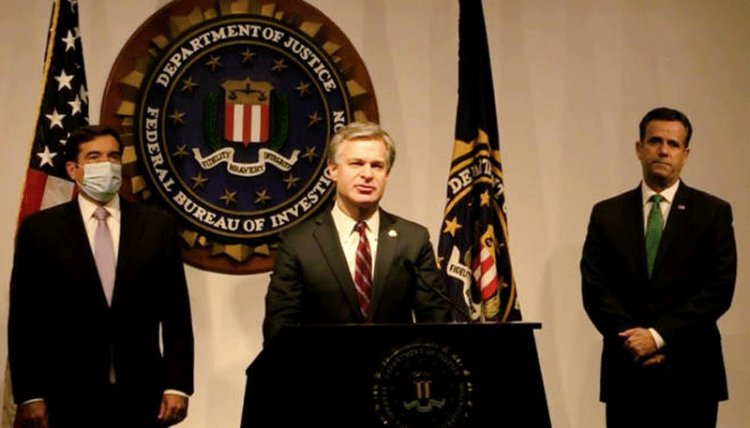FBI Says Iran And Russia Have US Voter Information

Washington: US national security officials say Iran was responsible for sending threatening emails to Democratic voters ahead of next month's presidential election.
The emails appeared to come from a far-right pro-Trump group and were meant to "incite unrest", National Intelligence Director John Ratcliffe said.
Mr. Ratcliffe also said US officials found Iran and Russia had obtained "some voter registration information".
Both Iran and Russia denied the accusations of election interference.
"Iran's strong rejection of American officials' repetitive, baseless and false claims was conveyed to the Swiss ambassador [who represents US interests in Tehran]," Iranian foreign ministry spokesman Saeed Khatibzadeh told state TV.
"As we have said before, it makes no difference for Iran who wins the US election," he added.
Kremlin spokesman Dmitry Peskov told the BBC: "We think this is unfortunate. These accusations come every day, they are all completely groundless, they are based on nothing."
"They are most likely some sort of internal political process connected with the upcoming elections."
Mr. Ratcliffe's decision to hold a briefing so close to the presidential election was seen as a testament to the government's concerns over voting interference and disinformation campaigns from foreign actors.
The intelligence chief said Iran's "spoof emails" claimed to be sent by the far-right Proud Boys group in order to "intimidate voters, incite unrest and damage" President Donald Trump.
He added that the voter data could be used in attempts to "communicate false information to registered voters that they hope will sow confusion chaos and undermine your confidence in American democracy".
Mr. Ratcliffe said officials "have not seen the same actions from Russia", but are aware they have some voter information.
In many states, voter data is available upon request, though each state has different requirements on who can request voter information, what data is available and how this data might be used, according to the National Conference of State Legislatures.















































